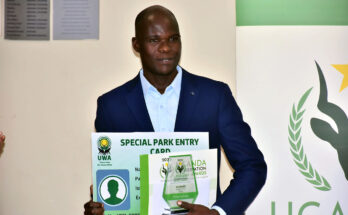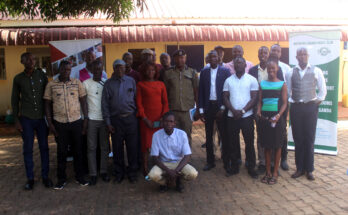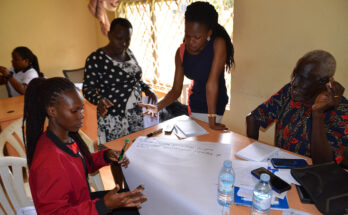As a journalist, you have probably heard about the maxim ‘no story is worth your life’. This expression may sound trite, literary, or figurative, but it’s true.
Like other professions, the media industry has got its own occupational hazards which make it hard for journalists to do their reporting effectively. As a result, such conditions negatively affect the environment in which reporters operate and the quality of their journalism, and yet society relies on them for information.
In a bid to ensure that journalists operate safely, Northern Uganda Media Club (NUMEC), through its project ‘Safe Communication: Creating a Harmless Media’ with the support of Usalama Fund, has put in place a ‘self-help desk’ where journalists can find helpful information and legal support to address issues such as sexual harassments, illegal detention, physical harm, cyberbullying, equipment damage and so forth.
A Safeguarding Focal Person, appointed by the NUMEC secretariat at the ‘self-help desk’, will be coordinating and responding to issues reported by journalists who need help. The self-help desk will also follow a safeguarding policy –taking a human-rights-centred approach – when responding to issues from journalists.
Just like in Uganda, many journalists continue to face suppression every day, from both state actors and non-state actors, during their line of work, globally. They are intimidated, physically harassed or sometimes killed. In 2018 and 2019, for instance, UNESCO recorded a total of 156 killings of journalists worldwide, and a recent study, by Women in the News found that one in two female journalists is sexually harassed at work.
Rosemary Anena, a freelance journalist, noted that journalists, especially those in rural settings, struggle to get help, saying some of them are not aware of the right procedures to follow to access help in times of trouble. She added that sometimes it is hard for journalists to get help because most of the bodies that can support them are based in the capital Kampala.
“This is a great move [from NUMEC] since the services [from the self-help desk] will be closer to us,” she said, adding that ” I hope that the people behind this great initiative will be willing to help us legally”.
Through her experience in reporting, Ms. Anena stated that sexual harassment remains the most common vice that many women journalists face in the region, adding that NUMEC should make it a priority to fight it.
Charles Akena, the NUMEC Programs Administrator, assured the journalists in northern Uganda that the self-help desk will address their problems timely and swiftly.
“The fact that we have these services here, journalists will have easy access to help. It will also be safe for them to report to us without fear so that action is taken since police, sometimes, fail to address their concerns in time” he said.
For more information, journalists who need help will be required to report their particulars to Alfred Oryem (Safeguarding Focal Person: info@numec.org; 0785541398) or Charles Akena (Programs Administrator: charles.akena@gmail.com).




